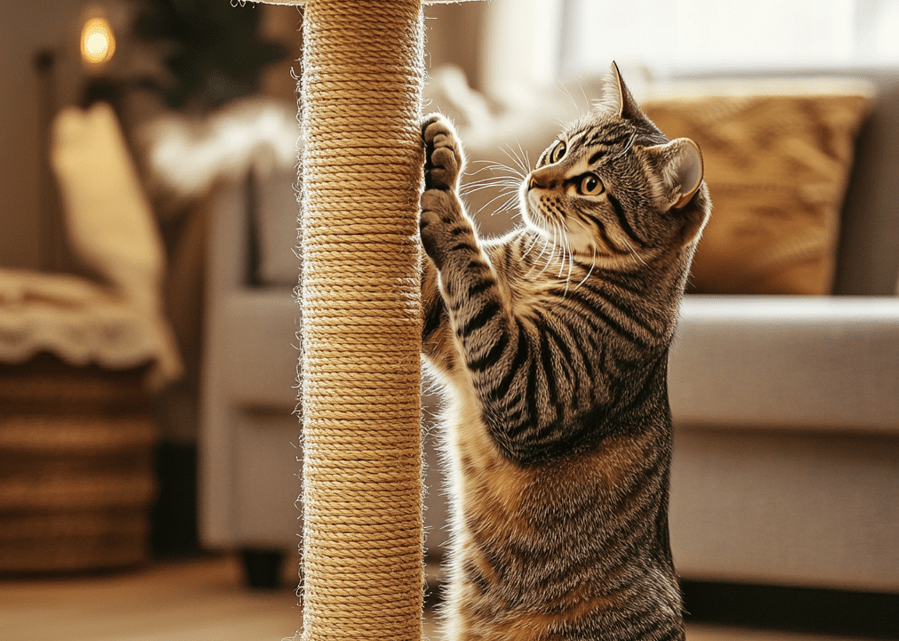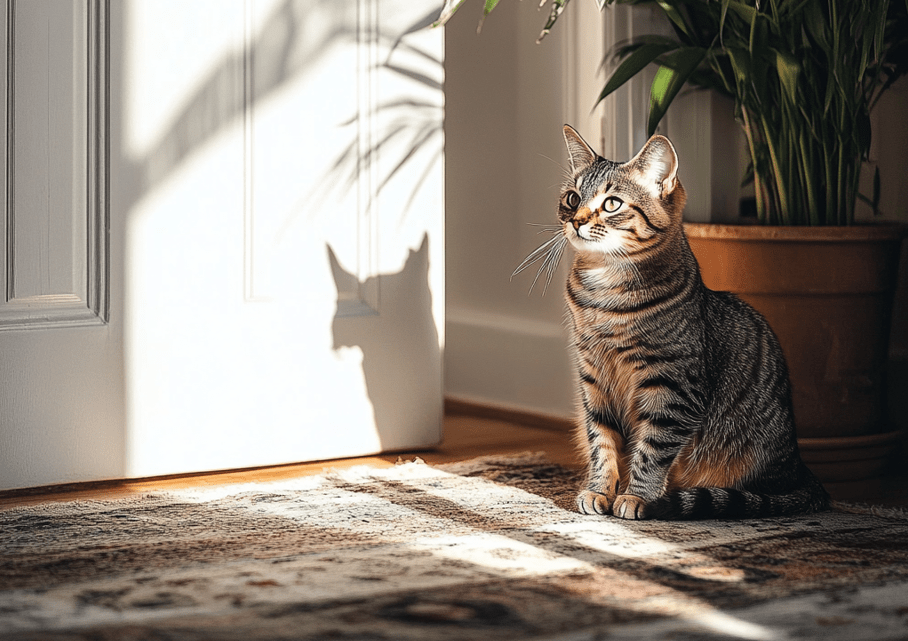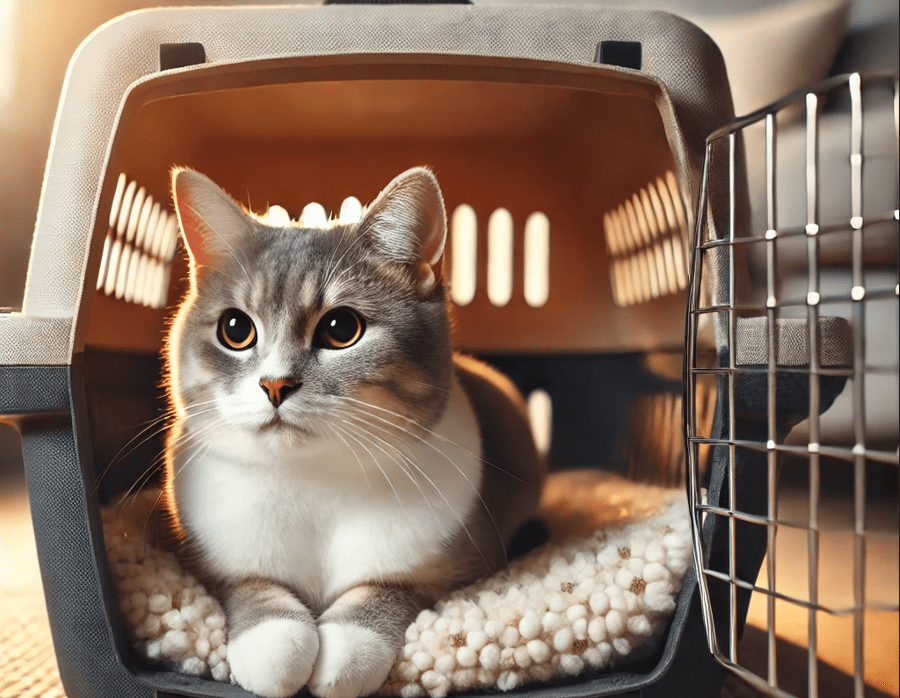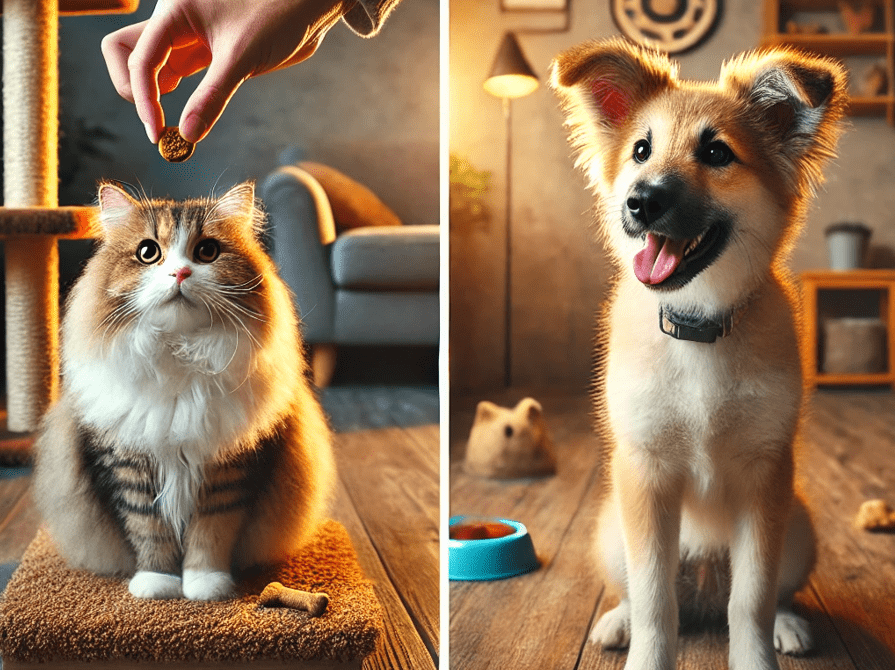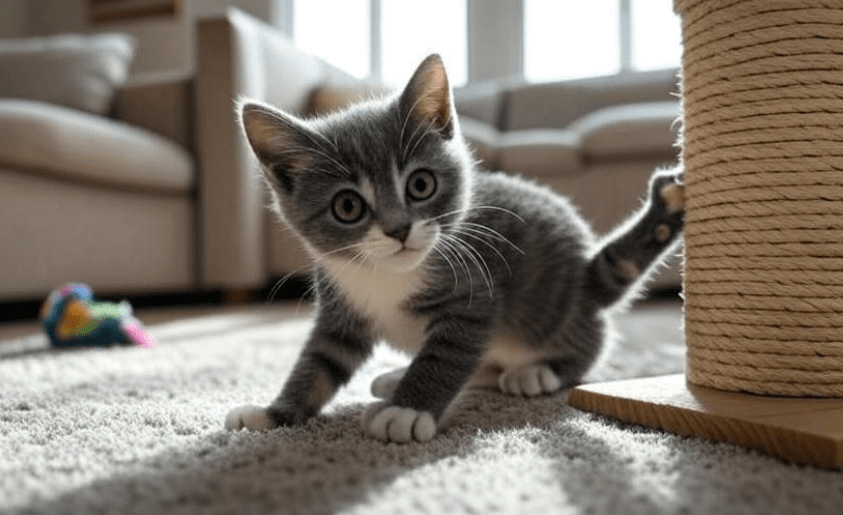
Is your kitten clawing at furniture, chomping on your hands, or swatting items off counters? All these habits are normal, and with the right strategy and patience, they can be unlearned. Kitten behavior correction is important in turning your kitten into an obedient adult cat. Learning how to get a handle on these things early can help you avoid long-term issues. Understanding kitten behavior correction is essential for fostering a well-behaved and happy feline companion.In this article, we will give you easy but effective ways to stop common kitten behaviors, resulting in a more peaceful home and happier cat.
Understanding Kitten Behavior
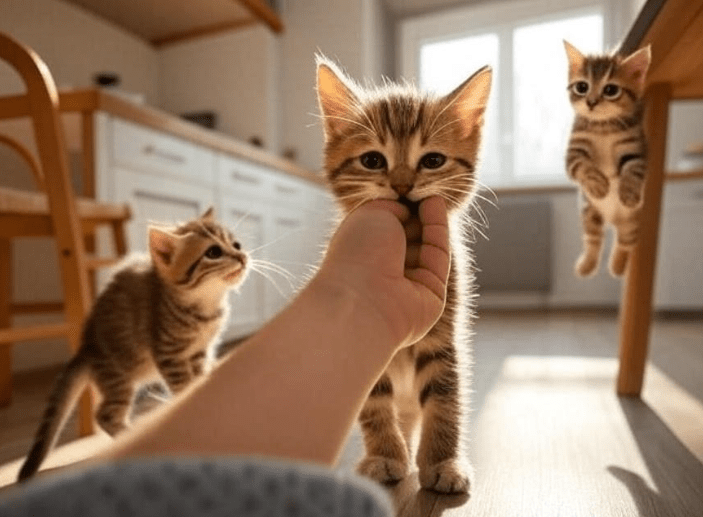
Kittens are curious, playful, and energetic by nature. They are investigating their environment with their claws, teeth, and paws. This exploration is cute, but it can also lead to naughty behaviors, like scratching the furniture, biting, or jumping on counters. The secret to adjusting kitten behaviors is understanding their natural instincts and redirecting them.
Much of what kittens do is because they can’t know better. This is because they scratch to stretch their muscles, sharpen their claws, or mark their territory. They also bite when they are playing or as a means of honing hunting skills. It is natural for some of these behaviors to develop, though they need to be redirected to more appropriate outlets. This is when they start learning life lessons, and when you can correct kitten behaviors before they develop into negative habits in their adulthood.
Kitten Behaviors Required to Address
As a new kitten parent, it’s important to know that certain behaviors are expected during kittenhood. Some of these kittens are too small to get proper kitten behavior correction, so here are a few of the more common behavior problems. An example is scratching furniture; cats like to scratch so they can stretch, mark territory, and sharpen claws. If they have no place to expend their energy, they can begin to scratch your furnishings.

During playtime, they might also bite or nip because it mimics their hunting behavior. This is normal but can become painful or annoying if not caught early. And kittens have a strong sense of curiosity and (often) jump up on counters, which allow them to get a great view. But this can also result in accidents and messes.
Kittens struggle with litter box problems, too. Others may have trouble with litter box training, going in the box, or even using the box at all. These behaviors should be addressed early on with kitten behavior correction so that they grow into well-behaved adult cats.
The Key to Correcting Kitten Behaviors: Positive Reinforcement
Positive reinforcement is one of the most efficient methods for correcting kitten behavior. This technique puts your kitten in the right and rewards them for doing so, so they know what’s good behavior! This encourages your kitten to repeat good behavior because it knows a positive outcome is associated with that.
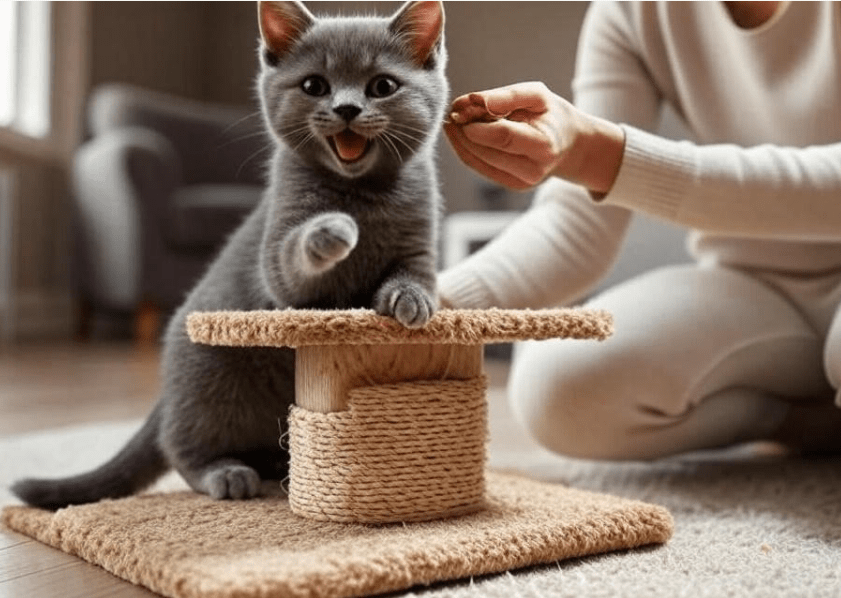
For instance, when your kitten scratches only the scratching post and not your couch, praise or treat them. This will reinforce the association that the scratching post does lead to good things! Praise reinforces positive behavior, which establishes trust between you and your kitten, making training sessions necessary and enjoyable.
Offering Suitable Alternatives
Kittens require outlets for their instinctual behaviors. Rather than reprimanding your kitten for claws and bites, give her alternatives. This is an integral part of correcting kitten behavior.
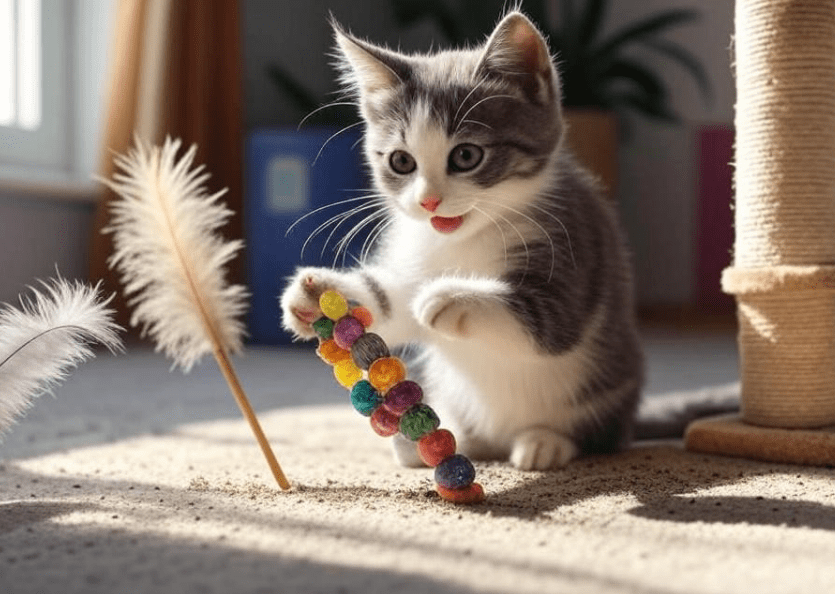
If your kitten enjoys a good scratch, supply scratching posts and pads. Train the team to be sure these options are available. Sprinkling catnip on the scratching posts will attract your kitten and promote use even more. Offering your kitten something they can scratch on diverts their habitual behavior from destroying your furniture.
Give chew or interactive toys for biting or nipping. It gives your kitten something to sink her teeth into without hurting you or ruining anything in the house. Kittens need to play, and the use of the appropriate toys will help satisfy their insatiable need to bite in a safe manner.
The Importance of Consistency in Kitten Behavior Correction
Perhaps the most important thing about correcting kitten behavior is consistency. Kittens, much like children, do well with routines and clear expectations. If you wish to change a behavior, you need it to be dealt with every time it occurs. If your kitten scrapes your furniture and you respond with “no” one time but don’t say anything the next, they’ll get confused. This consistency is key in teaching your kitten what is acceptable.

Make sure all members of the household are aligned on correcting behaviors. If people are inconsistent in how they respond to the same behavior, your kitten may find it hard to know what you want. Do the same commands, do the same redirection, and do the same rewards every time.
What to look for in a kitten such as a Cornish or Devon rex.
Scratching Furniture
If you’re a new kitten owner, we just want you to know: Some of these bad behaviors are kitten phase and par for the course. The Kitten Flushers trains cats to scratch in designated areas to prevent any scratches on furniture and for other specific reasons; scratching is a natural behavior for a cat, and kitties need to scratch to stretch, mark territory, and sharpen their claws, but if the behavior goes unchecked, furniture can be destroyed and carpets ruined. Some common behaviors include biting or nipping during play, as they would hunt, which can get painful and irritating if not addressed early. Also, kittens are naturally curious creatures that like to perch on counters for a better vantage point, but doing so can end in spills and injuries. Litter box issues are also common: Some kittens struggle with training, going outside the box, or avoiding one altogether. All of these behaviors can be addressed early on, with kitten behavior correction, to help ensure that they grow to be well-behaved adult cats.
Biting and Nipping
When kittens bite or nip during play, they are practicing their hunting techniques, but this behavior can become uncomfortable if not stopped. Use toys for play, not your hands, to teach them that only toys are for biting. If your kitten bites or nips when you play, stop right away to give them the lesson that biting makes the fun stop. By rewarding gentle play with praise or a treat, gentle behavior is framed as the preferred option. Redirect biting behavior with appropriate toys and play stops when biting the player occurs so the kitten learns the limits of acceptable play.
Jumping on Counters
A kitten jumping on countertops is the top of the list of kitten problems. To dissuade your kitten from jumping up wherever they want, you can use things like aluminum foil or double-sided tape as deterrents, because the texture will make the counter seem less appealing. With options such as a cat tree or climbing shelf available, you can provide a high spot in the room for your kitten to jump up and explore safely. Also, rewarding good behavior by giving them a treat or verbal praise when you see your kitten stay off the counter will reinforce their positive behavior. This is a way of discouraging counters by offering other options that are more rewarding, not offering the rewarding options, and making counters less appealing.
Dealing With Litter Box Troubles
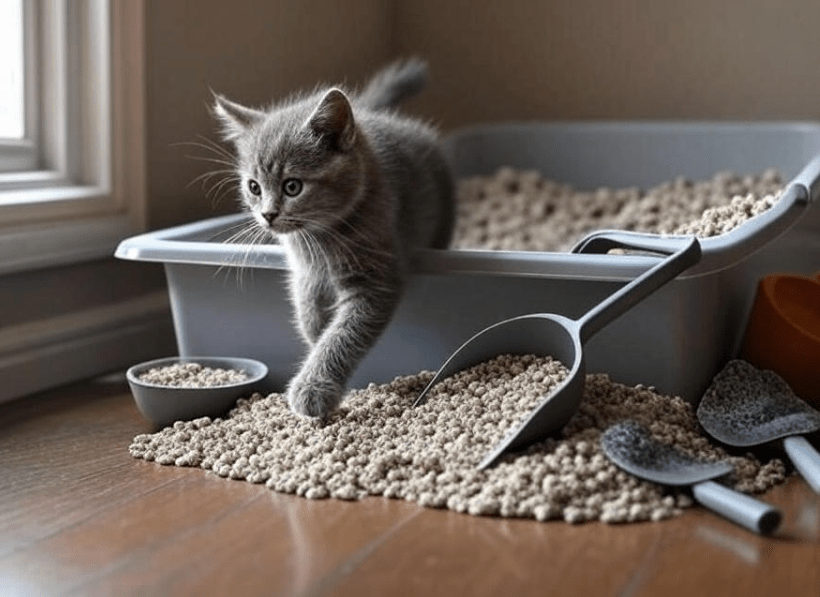
But litter box issues are common in kittens and rewarding with time. If your kitten won’t use the litter box? Make a few simple tweaks. It’s important to keep the litter box clean, as kittens can be picky when it comes to hygiene and will try to avoid filthy litter. Testing out the different types of litter can also be useful, as some kittens have a strong preference. Where you place the litter box is also important; if it’s loud or hard to get to, the kitten may avoid it. You can facilitate good litter box habits for your kitten by making sure that the litter box is clean, easily accessible, and appealing.
Conclusion

It is important to remember that your kittens are still growing, and correcting their behavior takes time, consistency, and patience. Tips for kitten behavior correction to help you mold your kitty into a well-behaved adult cat. Kittens often exhibit normal but potentially annoying behavior, such as scratching, biting, jumping on counters, and litter box issues,these things can be addressed through positive reinforcement, providing appropriate alternatives, and being consistent. Although kittens are learning about their world, you must be patient and allow them to develop. If you have a sound approach to behavior management, your kitten will learn the rules and thrive into a well-mannered adult cat who will make your home a happy home for everyone.

